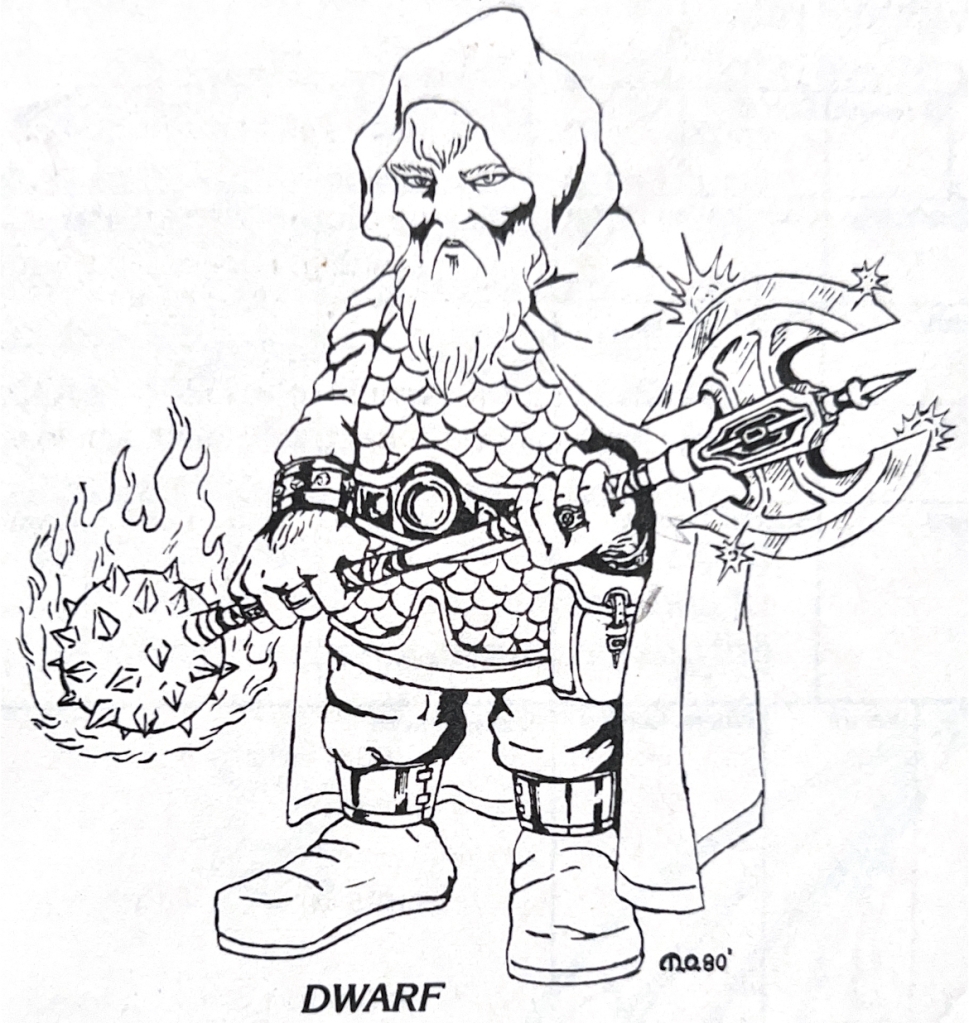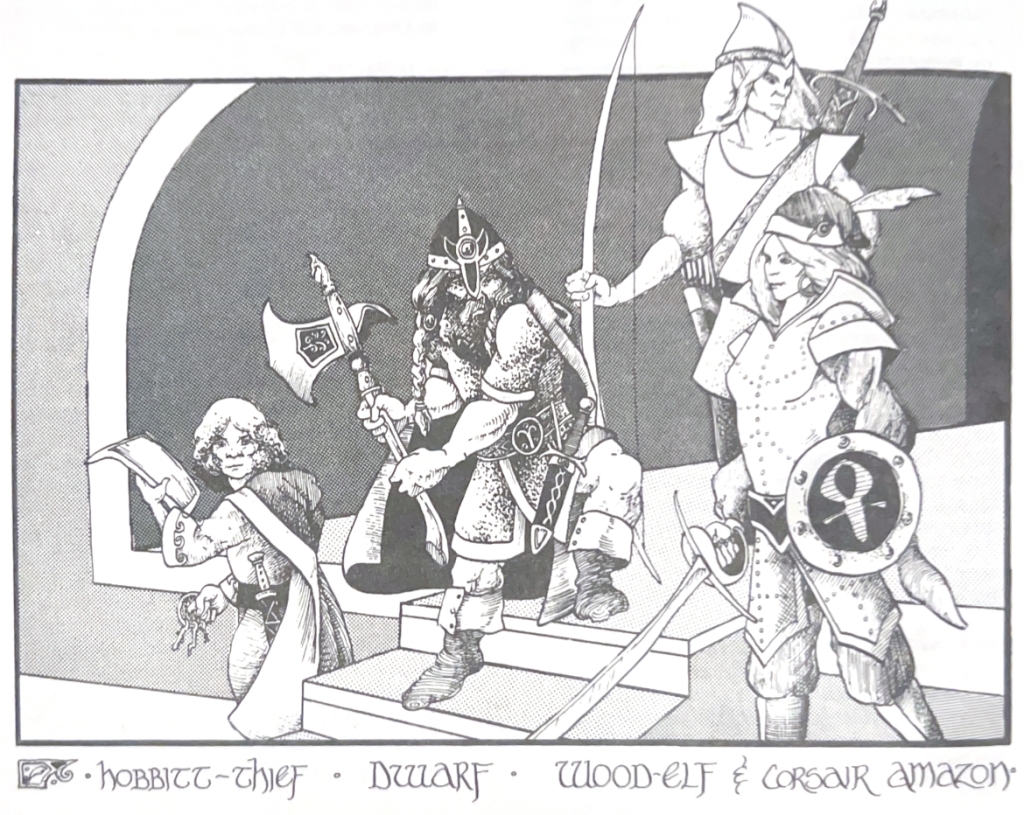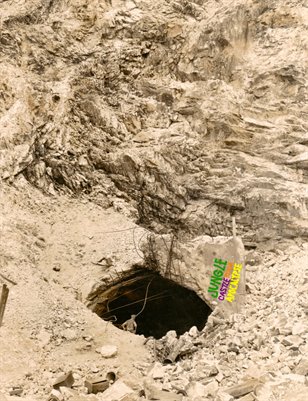Dwarves Grab Stuff and Elves Don’t Lie
February 9, 2024
Lately I’ve been preparing to resume our Arduin campaign originally started last summer. Trying to stick with the Arduin Adventure rulebook only, but dipping into the cornucopia of the Arduin Grimoire trilogy where Arduin Adventure is lacking. Sometimes making house rules, you know the drill.
One of the features I like in Arduin Adventure is how setting details are baked into the PC race descriptions and mechanics. For example, dwarf and elf PCs receive a bonus of +12 to select ability scores. No other PC race gets a larger bonus than that. Here’s the catch: roleplaying limitations…
Page 8:
“[Elves] never lie and will always repay a debt even if it takes a thousand years.”
Page 9:
“[Dwarves] love gold and precious things avidly, and each Dwarf has a 20% chance of simply grabbing any valuable without thinking.”
I love these. Rather than strictly limitations, I view them as fun and challenging roleplaying cues. As a player, try to minimize the drawbacks and use them cleverly for benefit. As DM, use them to spur action and introduce complications.

So sometimes dwarves grab valuables uncontrollably. Ok, seems like trouble waiting to happen. Notably, the trait doesn’t flat out prevent the dwarf from putting the valuable back where it was found, reluctantly, after the thrill of possession. Perhaps at the urging of friends. Perhaps at the convincing threats of the previous owner. The dwarf may try to avoid situations where the chance would present too much risk. For example, when a potentially cursed item is nearby. At other times, the dwarf may seek out situations to use the trait to their advantage.
In a world where dwarves are known for this behavior, they will be watched carefully. That could make dwarves good decoys. Sometimes a dwarf may not be compelled, but will intentionally grab a treasure, just to see what happens. And then play dumb. If they get caught: “So sorry about that…you know how dwarves are…all is forgiven?”

So elves never lie. That doesn’t mean they always tell the whole, plain truth. Sometimes they’ll say nothing at all. This can make an elf seem aloof, mysterious, evasive. Elves can use this trait to their advantage. Silence can be used deceptively.
Perhaps they tend to talk in riddle, metaphor, or allegory to obfuscate the truth or have multiple meanings. In that case, it’s up to the listener to decide what the truth is, and that decision may reveal more about the listener.
It’s not the first time Hargrave emphasized the notion of deception in his game. In the original Arduin Grimoire trilogy:
- The PC alignment chart has a “Lie Factor” for each alignment combination.
- One of the percentile thief abilities is LIE, the ”chance of successfully talking your way out of any situation in which you have been caught stealing, etc.”
- The stat blocks of monsters have “% Liar”. Some have a percentage, some are “too stupid to”, some “never lie”, etc.
That last one is famously connected to the infamous typo in the original D&D monster list: “% in Liar” instead of “% in Lair”.
I’m with Hargrave on this one: it’s more useful to know how often a monster is a LIAR, than to know if it’s in a LAIR. It’s an individualized roleplaying seed and supplement to reaction rolls. It makes explicit that monster encounters can often involve talking…and deception.




[…] week, dwarves and elves. This week, The Arduin Adventure rulebook, on […]